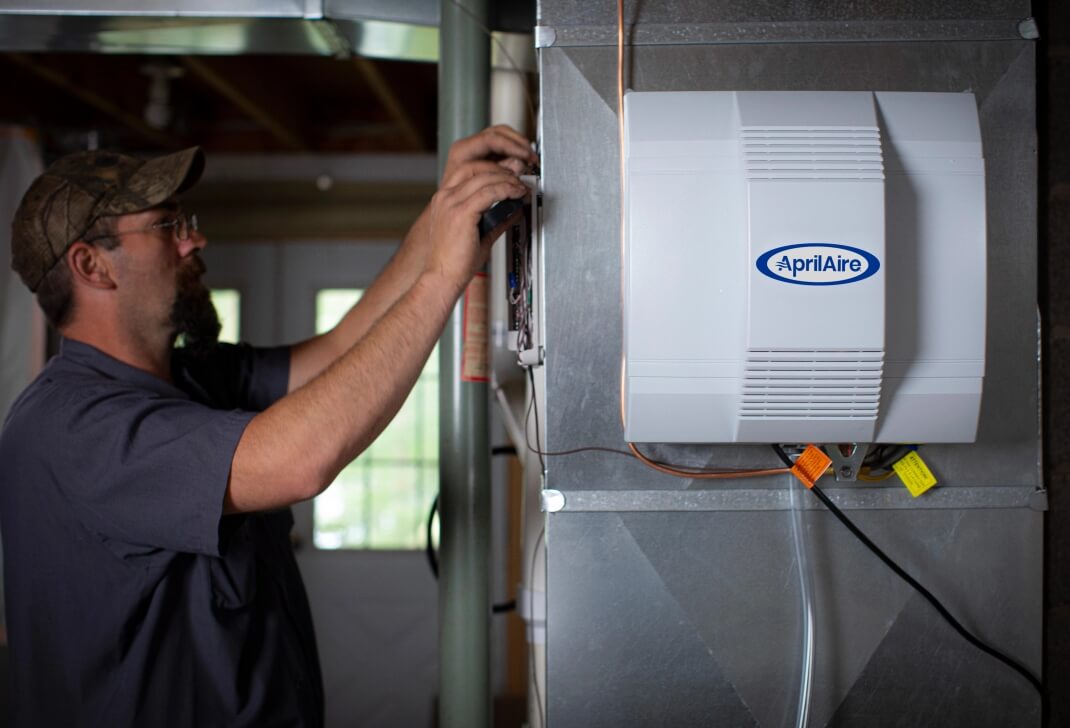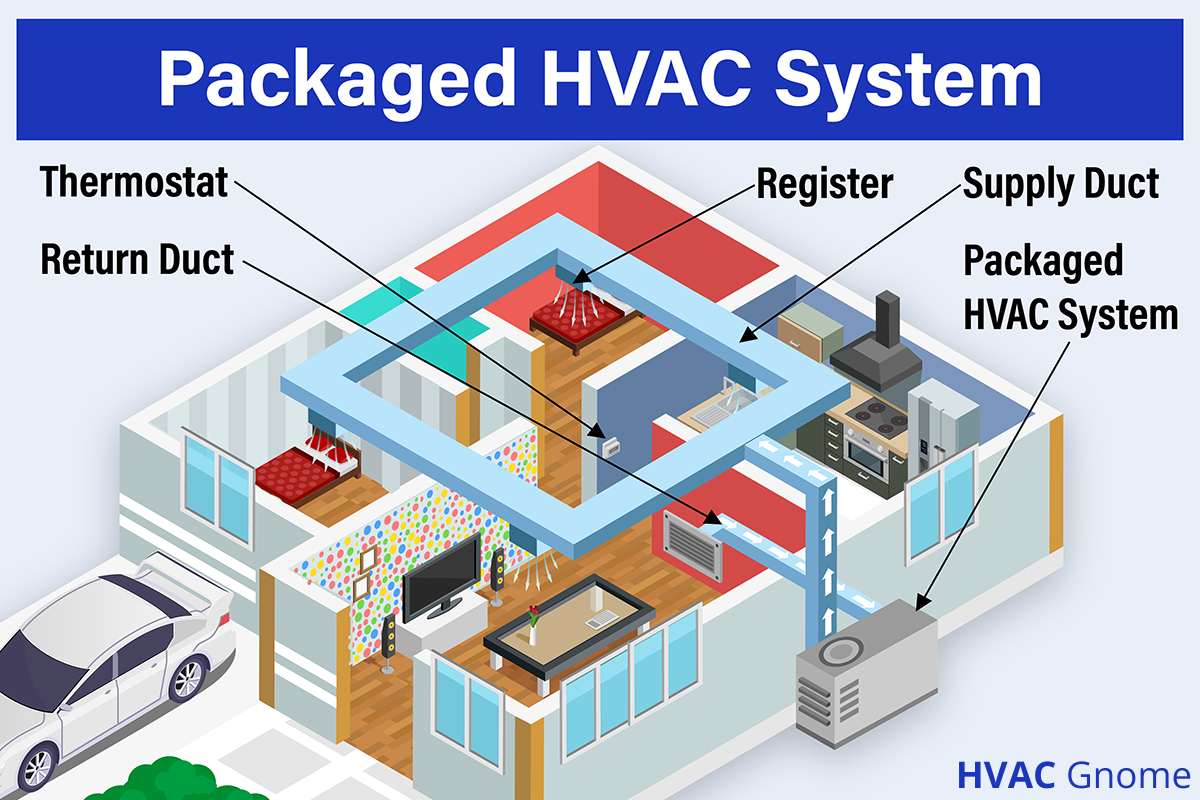Residential AC System Installation for Effective Home Air Conditioning
Residential AC System Installation for Effective Home Air Conditioning
Blog Article
An Extensive Take A Look At HVAC Services and Their Effect On Energy Performance and Expense Cost Savings
With technical improvements like smart thermostats and high-efficiency components, the potential for enhancing system efficiency is substantial. As we explore the detailed connection between HVAC systems and functional costs, consisting of the change towards eco pleasant options, the concern arises: how can these approaches be properly implemented to optimize both economic and eco-friendly benefits?

Importance of HVAC Equipments
heating and cooling systems are an essential element of contemporary buildings, playing a vital function in maintaining healthy and balanced and comfortable interior atmospheres. These systems, including ventilation, home heating, and air conditioning, are essential for controling temperature level, humidity, and air quality, therefore ensuring the well-being of passengers. Effective a/c systems contribute considerably to creating an optimal indoor climate, which is crucial for both household and business rooms.
In business structures, cooling and heating systems are integral to offering a secure and productive environment. By regulating indoor climate conditions, these systems help protect against the growth of mold and the spread of airborne impurities, hence protecting the health of staff members and customers. In addition, in residential settings, cooling and heating systems improve living conditions by offering regular thermal convenience and enhancing indoor air quality, which is vital for total health.
Moreover, the style and maintenance of heating and cooling systems have a straight influence on energy consumption and functional costs. Appropriately developed and preserved systems can substantially reduce energy use, leading to decreased energy bills and a smaller carbon footprint. The efficiency of these systems therefore plays a crucial role in advertising sustainability and energy preservation within buildings, highlighting their value in the contemporary architectural landscape.
Developments in A/c Technology
Technology in HVAC innovation is revolutionizing the means buildings handle indoor climates, introducing a new era of effectiveness and control. Recent improvements have actually concentrated on maximizing energy consumption while improving individual convenience. One notable development is the assimilation of smart thermostats, which make use of expert system to discover tenancy patterns and adjust temperatures appropriately, minimizing unnecessary power use.
Variable Cooling Agent Circulation (VRF) systems stand for another substantial leap onward. These systems permit for accurate temperature control in different zones of a building, boosting convenience and minimizing energy waste. VRF innovation is especially beneficial for large commercial rooms, providing flexibility and scalability.
Additionally, the development of Net of Things (IoT) gadgets has transformed a/c systems into interconnected networks with the ability of real-time data collection and evaluation. This connectivity allows predictive upkeep, guaranteeing systems run at peak performance and reducing unforeseen downtime.
Moreover, innovations in products and design, such as making use of high-efficiency coils and compressors, have boosted general system performance - Heating Contractor. The adoption of environmentally friendly refrigerants also emphasizes the sector's dedication to sustainability
These technical innovations are pivotal in decreasing functional expenses and ecological influence, establishing new criteria for constructing environment management.
HVAC Maintenance and Effectiveness
Making certain optimal performance of HVAC systems extends beyond technological innovations; it additionally depends upon efficient upkeep techniques. Regular upkeep is essential for sustaining efficiency, reducing energy usage, and expanding the lifetime of HVAC systems. The key objective is to make sure that all parts work at their peak potential, consequently lessening power wastefulness and maintaining consistent indoor comfort degrees.
Regular upkeep tasks, such as cleansing or replacing air filters, inspecting refrigerant degrees, and checking ductwork for leaks, are crucial for protecting against unnecessary pressure on the system. Filthy or clogged filters can block air flow, triggering the system to work more difficult and eat even more power. Likewise, poor cooling agent degrees can decrease my review here cooling efficiency, bring about higher operational prices.
In addition, periodic examinations by certified specialists can recognize prospective problems before they rise right into pricey repairs or system failures. These examinations commonly include examining electrical links, calibrating thermostats, and making certain the overall stability of the heating and cooling system. By dealing with minor troubles early, businesses and property owners can prevent unanticipated failures and enhance energy efficiency.
Cost-efficient HVAC Solutions
For those aiming to obtain the most out of their heating, ventilation, and air conditioning systems without damaging the financial institution, discovering affordable HVAC solutions can make a significant difference. One instant procedure is to spend in programmable thermostats, which allow individuals to establish details Look At This temperatures for various times of the day, optimizing energy use and lowering unneeded usage. By automating temperature level changes, property owners can accomplish significant financial savings on energy expenses.
Normal maintenance is one more essential element of affordable cooling and heating management. Ensuring that filters are cleansed or replaced frequently, ductwork is secured, and devices are serviced by specialists can prevent pricey repair services and improve system long life. Precautionary maintenance not just maintains system performance however also helps in avoiding unanticipated failures that can bring about pricey emergency situation fixings.
Furthermore, retrofitting existing systems with energy-efficient elements, such as variable speed motors or high-efficiency compressors, can be a prudent financial investment. These upgrades improve functional efficiency, lower power use, and can commonly be executed at a portion of the expense of a full system substitute.
Environmental Influence Decrease
Lowering the environmental impact of A/c systems is essential in today's pursuit of sustainable living. Cooling and heating systems are significant factors to energy consumption, accounting for nearly 40% of power usage in commercial structures.
Technical improvements in a/c layout and operation, consisting of the combination of clever thermostats and energy-efficient warm pumps, are crucial in lowering carbon footprints. These technologies enable maximized power use, decreasing wastefulness and enhancing total system performance. Additionally, adopting routine maintenance techniques ensures heating and cooling systems run at peak effectiveness, more stopping unneeded power usage.
Additionally, using environmentally pleasant refrigerants is important, as traditional cooling agents, like CFCs and HCFCs, have actually been terminated as a result of their ozone-depleting homes. Modern alternatives, such as hydrofluoroolefins (HFOs), deal lowered ecological threats, straightening with worldwide ecological procedures. By embracing these lasting techniques, HVAC solutions can play a transformative function in reducing environmental influences, promoting power performance, and cultivating a much more lasting future.
Conclusion

Additionally, the layout and maintenance of Heating and cooling systems have a straight impact on power usage and operational expenses. Routine upkeep is crucial for sustaining effectiveness, lowering power intake, and prolonging the life period of Heating and cooling systems. HVAC systems are substantial factors to power intake, accounting for virtually 40% of energy usage in commercial structures. Additionally, embracing routine maintenance practices makes sure A/c systems run at peak efficiency, additional curtailing unneeded power usage.
The change to ecologically friendly Heating and cooling systems further advertises and minimizes functional prices sustainability. (Heating Contractor)
Report this page